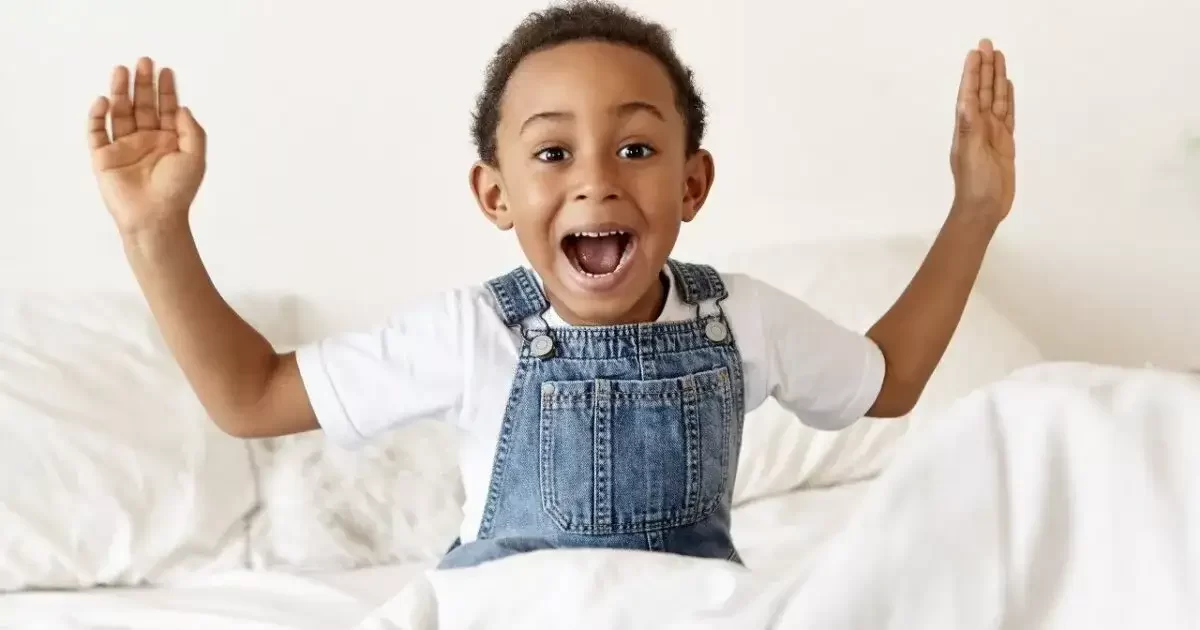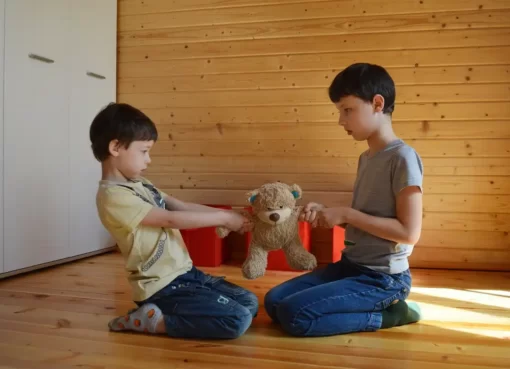Definition
ADHD (attention deficit hyperactivity disorder) is a neurodevelopmental disorder of childhood. It is usually first diagnosed in childhood and can continue into adulthood. Children with ADHD symptoms may have difficulty paying attention, being overactive & acting without thinking about the outcome.
Earlier known as ADD (Attention Deficit Disorder), it was only in May 2013, that the American Psychiatric Association released the Diagnostic and Statistical Manual of Mental Disorders wherein the Fifth Edition (DSM-5), the criteria to diagnose someone with ADHD came to the fore.
Causes
For this order, parenting style is not the cause of ADHD (though it can sometimes make symptoms seem better or worse). Medical studies have shown the possible causes include:
- Genes of the dopaminergic and serotonergic system.
- Twins are at almost double the risk of being born with ADHD.
- Accidental brain injury.
- Exposure to lead during pregnancy or at a young age.
- Use of alcohol and tobacco or ADHD medication by mother during pregnancy.
- Premature delivery.
- Low birth weight.
Symptoms
A child with ADHD symptoms might exhibit erratic behavior. Essentially, there are three different types of ADHD, depending on which types of symptoms are strongest in the individual:
- Essentially inattentive behavior: It is hard for the individual to organize or finish a task, to pay attention to details, or follow instructions or conversations. The person is easily distracted or forgets details of daily routines.
- Essentially hyperactive behavior -: The person fidgets and talks a lot. It is difficult to remain still for an extended period of time (e.g., for a meal or while doing homework). Smaller children may run, jump, or climb constantly. The person is restless and struggles with impulsivity.
- Essentially Impulsive behavior – Someone who is impulsive may blurt out an answer before someone finishes asking a question, intrude on and interrupt others constantly, or speak at inappropriate times. It is difficult for the individual to wait their turn or listen to orders. A person with impulsiveness is more prone to accidents and injuries than their peers.
ADHD symptoms can appear as early as at the age of 3.
Test and Assessment Tool
Brain Differences
From the images from the MRI scan, the activities of the prefrontal cortex, a brain area that plays a role in behavior, problem-solving, and emotions can clearly differentiate an ADHD child from a normal child.
Assessment tool
The Vanderbilt ADHD Diagnostic Rating Scale ( VADRS ) or “Conners’ Teacher Rating Scale” ‘is a psychological assessment tool for parents of children aged 6 onwards designed to measure the severity of attention deficit hyperactivity disorder (ADHD) symptoms.
But with this questionnaire model “kids are often misdiagnosed,” if the therapist doesn’t have extensive experience with ADHD,” says Imad Alsakaf, MD, an assistant professor of psychiatry at Creighton University in Omaha, NE.
Also, other illnesses and health problems may also cause hyperactivity and attention problems which may include sleep disorders, depression, & hearing and vision problems.
So it’s always wise to see the doctor for a full physical exam and health history. It’s wise to see a psychologist. “They have the time to do a very thorough evaluation”
Treatment
As early as 6 years onwards, children suffering from ADHD are put on meditations:
- Stimulant medications – Between 70-80% of children with ADHD have fewer ADHD symptoms when taking these fast-acting medications.
- Non–stimulant medications – They do not act as rapidly as stimulants, but their effects might continue for up to 24 hours.
These medications appear to boost and balance levels of brain chemicals called neurotransmitters. The dose of stimulant drugs may need to be adjusted if significant side effects occur or as your child matures. Ask your doctor about possible side effects of stimulants that may involve: Heart problems and psychiatric problems
It is critical that your child takes the correct dosage of medicine as prescribed. Parents may be concerned about stimulants and the possibility of misuse or addiction.
Behavior Therapy
AAP recommends combining pharmaceutical treatment with behavior therapy for children aged 6 and above. Several forms of behavioral treatments have been shown to be successful, including:
- Behavior therapy. Teachers and parents can learn behavior-changing strategies, such as token reward systems and timeouts, for dealing with difficult situations.
- Social skills training. This can help children learn appropriate social behaviors.
- Parenting skills training. This can help parents develop ways to understand and guide their child’s behavior.
- Psychotherapy. This allows older children with ADHD to talk about issues that bother them, explore negative behavior patterns, and learn ways to deal with their symptoms.
- Family therapy. Family therapy can help parents and siblings deal with the stress of living with someone who has ADHD.
ADHD and Meditation
Researchers in several studies are showing that practicing yoga can have a positive effect on kids with ADHD.
An improved behavior effect was seen in the children’s ability to pay attention and improve their adaptive skills in the classroom, one of the things that make yoga work is its emphasis on “mindfulness.”
Parenting a Child with ADHD
The first point to remember is “Don’t waste your limited emotional energy on self-blame.” ADHD is a brain-based disorder that is almost always inherited.
Mindfulness is a practice in meditation that brings you into the moment, rather than allowing your thoughts to make you volatile. When feeling stressed out, take a deep breath and stop dwelling on what has happened in the past or what could happen in the future.
Improving Parenting Skills with Mindfulness
No matter how out of control, uninterested, or irrational your child acts at a given point in time, what you do or say can potentially escalate or de-escalate the situation. Use mindfulness techniques to calm the situation and use your energies in constructive ways:
- Become aware of your thoughts. – your thoughts can be inaccurate based on judgment, presumptions, and assumptions. Fully keep these emotions aside while listening to your child, even if you disagree.
- Become aware of your emotions in the situation. – Being excessively angry, upset, anxious, or exhausted can prevent having meaningful & skillful communication with your child.
- Recognize when ADHD symptoms are getting in the way of communication – Recognizing the ADHD symptoms of your child may help reduce your frustration and reactivity and increase your ability to facilitate & empathize with your child.
Conclusion
It’s hard parenting an ADHD child. It tests your parenting skills to the core. As with any mental disease, family & friends’ support is very important.
Although it’s rarely seen that a child’s hyperactivity is the only symptom of ADHD.
Most of the kids between 3 years & 7 years are active and to some extent hyperactive, which is just fine. It is only when you see things up & over beyond their hyperactivity at home & in school, that you start thinking along the lines of ADHD.
Most parents follow the questionnaire evaluation to assess their child for ADHD which may be prone to ‘errors’.
It is to be noted that parents are not discouraged from taking their kids for the evaluation, it’s just that, it has been seen that over-caring parents become doctors by themselves by reading about ADHD information on the internet.
Do not relate just a couple of symptoms out of the list of numerous ADHD symptoms to assess your child’s mental health.
In fact, in many cases, the symptoms of ADHD subsides as your child grows older. Parents who relate more than 5 or 6 potential ADHD symptoms, shall go ahead & see an experienced psychologist, as once ADHD is diagnosed, the line of treatment wears down both the child and the parents alike.
Citation
https://www.cdc.gov/ncbddd/adhd/behavior-therapy.html
https://www.cdc.gov/ncbddd/adhd/facts.html
https://www.nimh.nih.gov/health/publications/attention-deficit-hyperactivity-disorder-adhd-the-basics/
Using Mindfulness When Parenting a Child with ADHD
Yoga for ADHD? Studies Show It Can Be Helpful
Featured pic -Kids photo created by karlyukav – www.freepik.com





Thank you very much for sharing, I learned a lot from your article. Very cool. Thanks. nimabi
Your blog posts never fail to entertain and educate me. I especially enjoyed the recent one about [insert topic]. Keep up the great work!
I appreciate your creativity and the effort you put into every post. Keep up the great work!
Your article helped me a lot, is there any more related content? Thanks! https://www.binance.com/lv/join?ref=V3MG69RO
This is really interesting, You’re a very skilled blogger. I’ve joined your feed and look forward to seeking more of your magnificent post. Also, I’ve shared your site in my social networks!
Can you be more specific about the content of your article? After reading it, I still have some doubts. Hope you can help me.